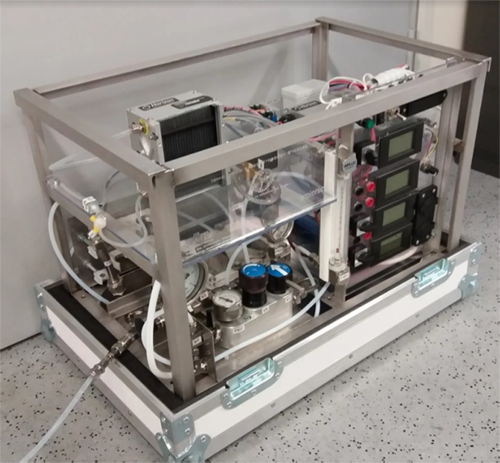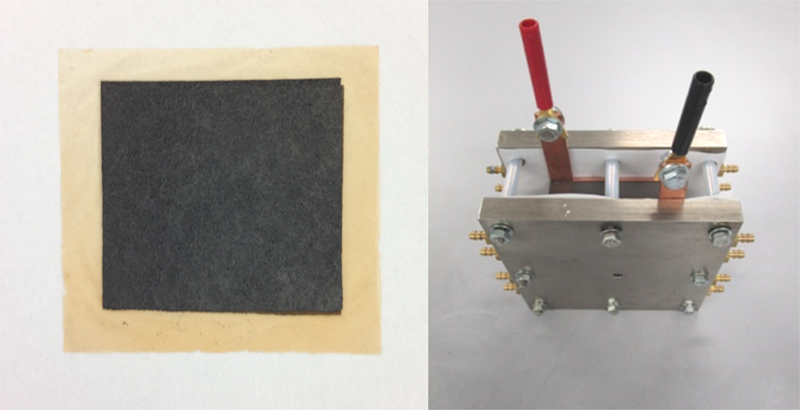IEA AFC Annex 35: Fuel cells für portable applications (Working period 2014 - 2017)
Short Description
Motivation
The aim of Annex 34 of Technology Collaboration Programm on Advanced Fuel Cells of the International Energy Agency (IEA) included information exchange on the status and new developments of portable fuel cell systems such as the direct ethanol fuel cell (DEFC) and the direct borohydride fuel cell (DBFC) and comprised the development and manufacture of membrane electrode assemblies (MEAs) all the way through to system components such as electronic converters or gas supply units. In addition the setup and configuration of hybridized systems and the key topics of secure operation, codes and standards were of interest.
Due to user-friendliness, the focus is on low-temperature and direct-alcohol fuel cells. The aim of the project was to develop highly efficient, stable and cost-effective cell components for the portable fuel cells (in particular DEFC and DBFC) in order to improve their life time and their power densities.
Content and approach
The DEFC and the DBFC were developed for portable applications, respectively.
The subjects of subtasks of the Annex 35 were:
- System analysis and hybridization
- System, stack and cell development
- Codes and standards, safety conditions, fuels and their packaging, transport
- Extension of the life time for portable fuel cells
The research activities at Graz University of Technology in Annex 35 focus predominantly on subtask 2 "System, stack and cell development" and subtask 4 "Extension of the life time for portable fuel cells".
The development and characterization of new materials for fuel cells, which convert liquid fuels such as ethanol and NaBH4 efficiently into electrical energy, were discussed in the period from 2014 to 2017.
The cost were reduced by new synthesis procedures and by the use of cheaper materials for fuel cell components, respectively. Within the framework of the project "e!Polycat", multi-stage processes are developed for the synthesis of Pt-free anode catalysts and polysaccharide membranes based on composite materials to improve the performance of the alkaline direct ethanol fuel cell. The synthesized components were investigated in form of a MEA (see Figure 1, left) in a single cell configuration (see Figure 1, right) under various operating conditions.
Within the framework of the project "H2 store", two prototypes were constructed and successfully used for the proof-of-concept. This included a pilot plant for the selective release of hydrogen with a Polymer Electrolyte Membrane Fuel Cell (PEMFC) and a DBFC (see Figure 2).

Another focus at Graz University of Technology is the development of processes for simple, efficient and safe hydrogen storage with metals and in ionic liquids.
Results
The results of current research projects at the Graz University of Technology relating to the subtasks of the Annex 35 "System-, stack- and cell development" and "Extension of the life time for portable fuel cells" were disseminated in peer-reviewed journals, proceedings or as abstracts. The research results were also presented within the scope of poster presentations and lectures at national and international events, as well as in the workshops of the International Energy Agency (IEA).
Participants
Denmark, Germany, Italy, Japan, Canada, Corea, Austria, Sweden
Contact Address
Technische Universität Graz
Institut für Chemische Verfahrenstechnik und Umwelttechnik
Brennstoffzellenlabor
Assoc.Prof. Dr. Viktor Hacker
Inffeldgasse 25 C
A-8010 Graz
Tel.: +43 (316) 873-8780
E-Mail: viktor.hacker@tugraz.at
Web: www.icvt.tugraz.at

